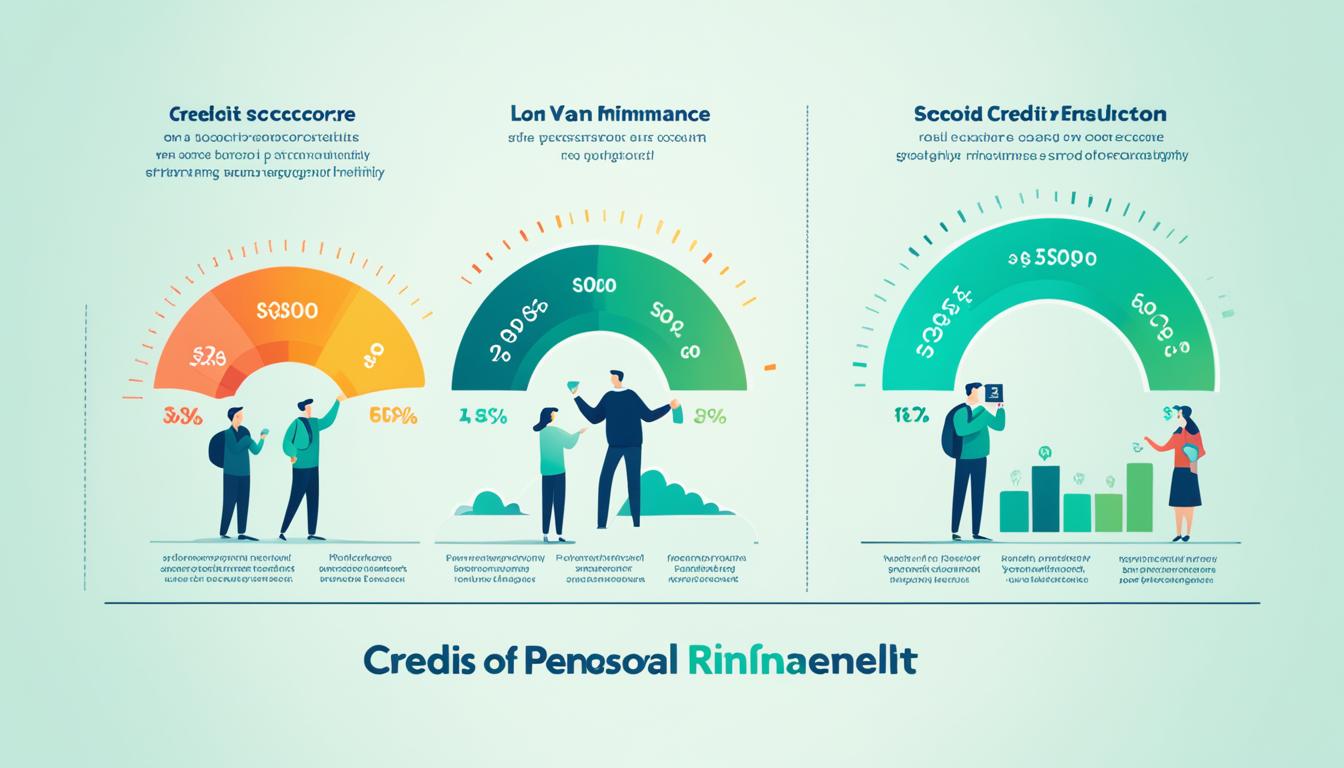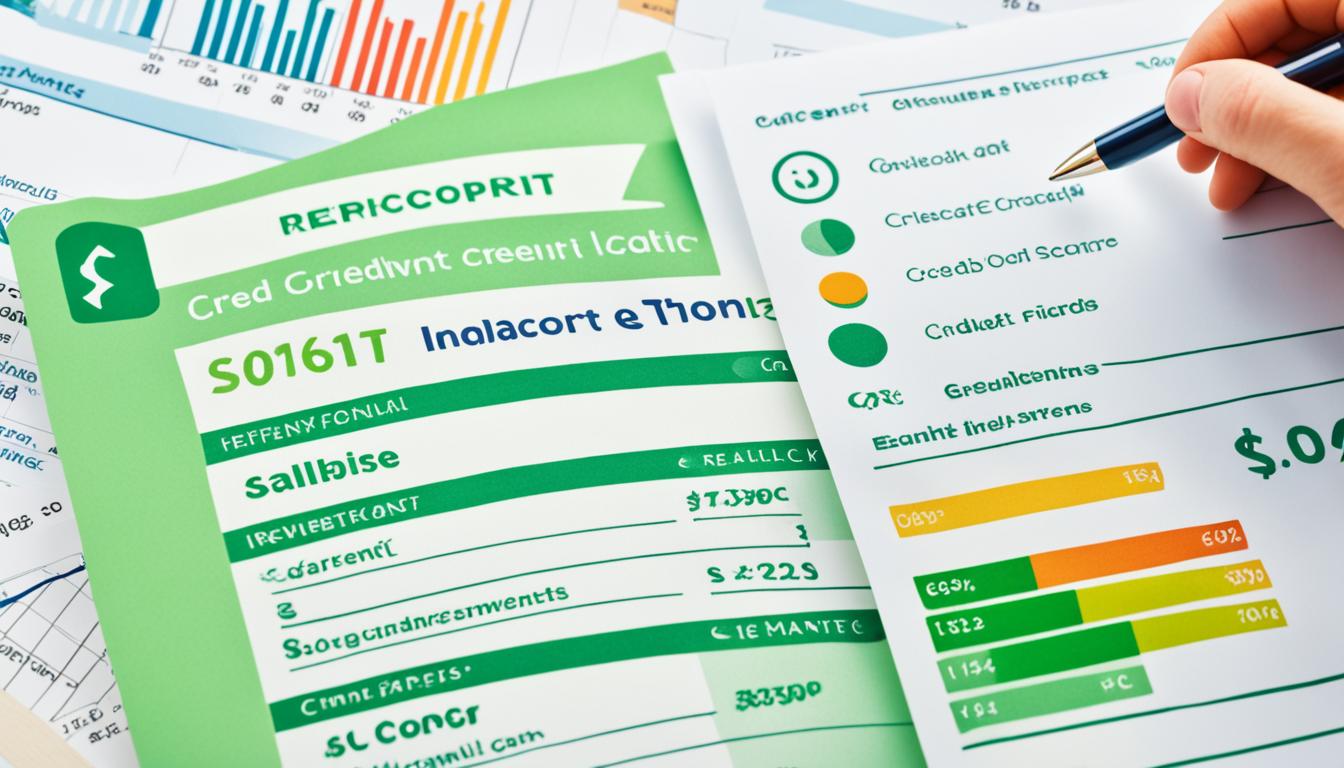
Refinancing student loans or getting personal financing needs you to meet credit needs. Earnest, a known lender, asks for a certain credit score from those applying for loans.
They value a good credit score as it helps get better loan deals. But, they check many things besides the score when you apply. This way, they make sure to look at all parts of your financial picture.
Earnest looks at your income, savings, debts, and how well you’ve paid in the past. All these are very important in checking if you can handle a loan and if they can give you one.
For student loan refinancing, you need to fit several criteria to apply with Earnest:
- Being a U.S. citizen or permanent resident
- Reaching the age of majority in your state
- Graduating from a U.S. school that has a Title IV accreditation
- Being the main person responsible for the loans you want to refinance
- Holding a steady job and showing you’re careful with money
By checking these criteria deeply, Earnest hopes to find people who can pay back their loans. This way, they lower their risk and can offer good loan deals to those who qualify.
It’s key to know about Earnest’s credit score needs and loan criteria if you want to refinance your loans or get personal financing. Meeting these makes it more likely to get a good loan offer and reach your money goals.
Key Takeaways:
- Earnest needs specific credit scores from those wanting student loan refinancing or personal financing.
- A good credit score helps but isn’t the only thing considered. They also check your income, savings, debts, and past payments.
- For refinancing, you must meet criteria like being a U.S. citizen, a certain age, graduating from an accredited school, and more.
- Meeting these criteria improves your chance of getting a good loan deal.
- It’s important to understand and meet Earnest’s requirements if you’re looking to refinance or borrow.
Eligibility Factors for Student Loan Refinance
Thinking about refinance through Earnest? Make sure you know what lenders look at. It helps to match their criteria to get better loan terms.
Critical Eligibility Factors
Earnest looks at several things to see if you qualify. The key points are:
- Income is key. It shows if you can manage new loan payments.
- Mortgage or rent payments show your ability to budget.
- If you filed for bankruptcy before, it might affect your chances.
- Your current loans are checked to see if you’re managing them well.
- Savings and bank balances prove your financial stability.
- Non-student, non-mortgage debts also impact your financial picture.
- Credit card payment history reflects your budget habits.
- Having a good credit score is important for refinancing.
Meeting these factors improves your chance of getting a refinance. It shows you’re good with money and can handle new debt well.
Lenders need to see you’re financially responsible. Make sure to meet all their requirements to succeed in your refinance.

Getting familiar with and fulfilling these criteria is your first step towards a loan refinance. With this knowledge, it’s time to check your financial health. See if you fit what lenders are looking for.
Income and Employment Requirements
Earnest’s refinancing needs people to meet certain income and job needs. These rules are key in deciding if you can refinance your loan and the terms you get.
To refinance with Earnest, you must have a stable job and earn a steady income in U.S. dollars. Lenders usually need your pay stubs or other proof of income. This is to see if you can keep making money to pay back the loan.
The more you earn, the better rate you might get if you refinance. Lenders may see you as less of a risk with a good income. But, even without a high income, you could still refinance.

Lenders care a lot about if you can afford the loan after refinancing. They check your income and job history to see if you can pay without problems. This helps them figure out if you’re likely to pay back the loan on time.
Meeting the income and employment requirements for refinancing is crucial to demonstrate your ability to afford the refinanced loan. It’s important to have stable employment and a consistent income to increase your chances of qualifying for refinancing and securing favorable loan terms.
Credit Score and Credit History
Refinancing with Earnest means you must meet their minimum credit score needs. Yet, lenders look at more. They check your debt-to-income ratio and how well you’ve paid before.
You generally need fair to good credit to refinance. A higher credit score gets you better rates and terms on your loan.
Lenders study your credit history through your reports. They want to see timely payments, how you handle credit cards, and any red flags like bankruptcy.
It’s smart to work on your credit history before you refinance. Pay on time and lower your credit use to show lenders you can handle credit well.
Factors Considered in Credit Evaluation for Refinancing
Lenders also look at other parts of your credit history when you refinance:
- Payment History: A track record of on-time payments shows you’re financially responsible.
- Credit Card Payments: Paying your credit cards on time proves you manage your credit well.
- Debt-to-Income Ratio: Lenders check how much of your income goes to debt. Lower ratios are better and show you’re financially stable.
To be eligible for refinancing, it’s vital to have a strong credit history. Lenders prefer borrowers with a history of reliable payments.
To refinance with Earnest, you must meet their credit score standards. But, having a good credit history is also crucial. Keeping up with payments, using credit wisely, and cutting down on debt all help. They improve your chances of refinancing and getting better loan terms.
Debt-to-Income Ratio and Financial Stability
Lenders look at a borrower’s debt-to-income ratio closely. A low debt-to-income ratio signals strong financial stability. This tells lenders you can pay off new debts.
To make your debt-to-income ratio better, consider a few steps. First, try to earn more money. This could be by asking for a raise or working part-time. Next, focus on paying off debts with high interest rates. Doing this lowers your debt and your ratio gets better.
It’s also smart to avoid adding new debts. This keeps your ratio from getting worse. Instead, work on managing what you already owe. Debt consolidation can also help. It combines several debts into one, making it simpler to pay and potentially improving your ratio.
There are other things lenders check to gauge your financial health:
- A healthy savings account impresses lenders. It shows you’re prepared for unexpected costs.
- Your bank account balances are reviewed to see how stable your finances are.
- Credit card debt or personal loans also matter in figuring out your financial health.
By working on your debt-to-income ratio and showing financial responsibility, you can do better in refinancing and getting good loan terms.
“A lower debt-to-income ratio indicates better financial stability, reassuring lenders of a borrower’s capacity to meet their financial obligations.”

Importance of a Lower Debt-to-Income Ratio
Having a low debt-to-income ratio is great for getting better loan terms. It also helps your finances in many ways. You can save more money, invest, and reach your financial dreams.
Keeping your debt-to-income ratio low is key for lasting financial security.
Building Credit History and Improving Credit Score
To refinance your student loan, having a solid credit history is key. Lenders look at your credit history when you apply for a loan. Luckily, there are ways to make yourself more creditworthy.
Taking care of old credit accounts is a good start. Your credit score gets better with a longer history. So, by keeping your old accounts active, you show you can manage credit wisely over time.
Opening new credit accounts too often can hurt your score. Lenders might see it as risky. Try to limit how many new accounts you open to protect your credit score.
Being an authorized user on someone else’s credit can also help. This means you use someone else’s credit account. Make sure the account owner pays their bills on time and keeps their credit card debt low.
“Building a longer credit history can improve eligibility for refinancing.” – Financial Expert
It’s important to pay your bills on time to improve your credit score. This shows lenders you’re responsible. Consistency in paying on time is key.
Another big step is to keep your credit use low. Your credit score can benefit if you use less of your available credit. It’s a sign of managing credit wisely and financial strength.
“To improve your credit score, pay bills on time and reduce credit utilization.” – Credit Specialist
Always check your credit report for mistakes. These mistakes can lower your score. Fixing them can make you look more creditworthy and help you refinance.
Remember, it takes time and effort to build a good credit history and score. But doing so can open financial doors and boost your financial health.

Alternatives to Student Loan Refinance
If you can’t refinance your student loans, don’t worry. There are more ways to help. Before you decide to refinance, look into these options. Student loan consolidation and federal loan repayment plans are two good choices.
Student Loan Consolidation
Consolidating your federal loans can be a good move. It brings all your federal loans together into one. Then, you make just one payment each month. It won’t lower your interest rate, but it can simplify how you pay back your loans.
Federal Loan Repayment Options
Looking into federal repayment plans is another smart step. The government has plans that are based on your income and family size. These include plans like income-driven, extended, and graduated repayment. Such options might make your monthly bills more manageable.
If paying your loans seems impossible, there’s help. You might be eligible for loan forgiveness. This means the government might cancel part or all of what you owe. For this, you might need to work in public service or teach in certain areas.
It’s wise to check out all the options available. Make sure to do thorough research. You could also talk to a financial advisor or student loan counselor to get more help.

Conclusion
Getting the right credit score is key in refinancing student loans with Earnest. They also look at your income, job status, how much you owe compared to what you earn, and your credit history when deciding if you can refinance. Meeting these needs helps you get better interest rates and loan conditions. It’s important you meet Earnest’s set standards to access these benefits.
Refinancing can lower your financial burden and make debt easier to handle. Earnest carefully reviews each applicant to make sure they’re suitable for refinancing. They look at your credit score, how secure your income is, and your overall financial health to find the best offer for you. If you qualify, refinancing with Earnest is a wise step for your finances.
To wrap it up, Earnest requires a certain credit score for student loan refinancing, but looks at many other things too. Your income, work situation, debt-to-income ratio, and credit history also matter. Meeting all these conditions can better your chances of getting a refinance with Earnest. That means you might get to enjoy lower rates and better loan terms.
FAQ
Do I need a minimum credit score to qualify for a student loan refinance with Earnest?
Yes, specific minimum credit score requirements exist for student loan refinancing through Earnest.
What factors do lenders consider for student loan refinance eligibility?
Lenders look at your income, savings, and your debt compared to what you earn. They also check if you have paid on time in the past. Being a U.S. citizen or permanent resident, over 18 years old, and graduating from a U.S.-based college or university matters. You must also be the main person on the loans you want to refinance. Plus, having a stable job and a good financial situation is important.
What are the income and employment requirements for refinancing?
Earnest needs you to have a steady job and income in U.S. dollars. Having a higher income could mean better rates. Prepare to show pay stubs or other proof of your income.
How does credit score and credit history impact eligibility for refinancing?
Aside from a minimum credit score, lenders check your credit report. They make sure you pay on time, don’t miss credit card payments, and don’t have bankruptcies or money owed that’s in collections.
How does debt-to-income ratio affect refinancing eligibility?
Your debt-to-income ratio shows lenders if you can take on more debt. A lower ratio means you might be more financially stable, and could get better refinance terms.
What can I do to improve my credit history and credit score for refinancing?
Work on having credit for a longer time, keeping old credit accounts open, paying your bills on time, using less of your credit, and checking your credit reports for mistakes. These steps can boost your credit score and your chances of getting better refinance deals.
Are there alternatives to student loan refinance if I don’t meet the eligibility requirements?
If you don’t qualify, you can look into student loan consolidation or federal repayment options. You could also check out loan forgiveness plans for help.






